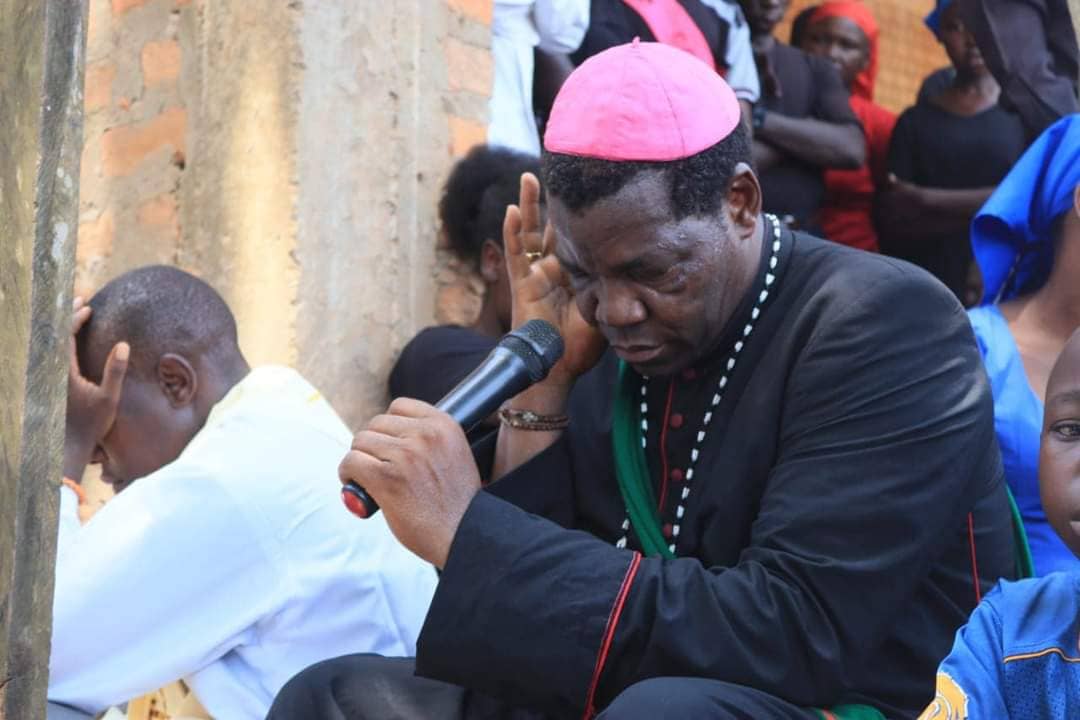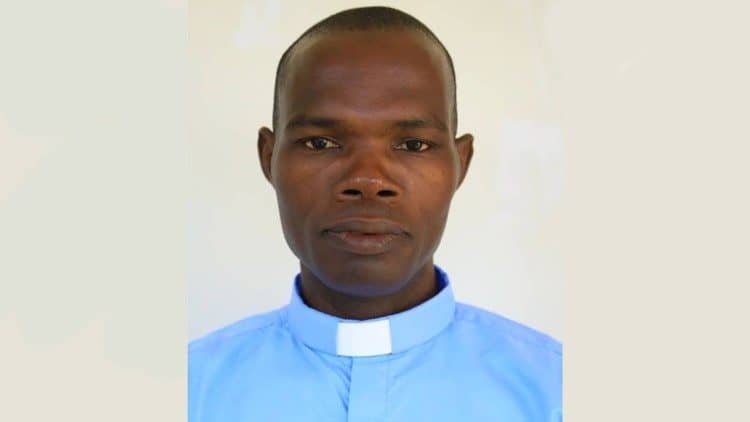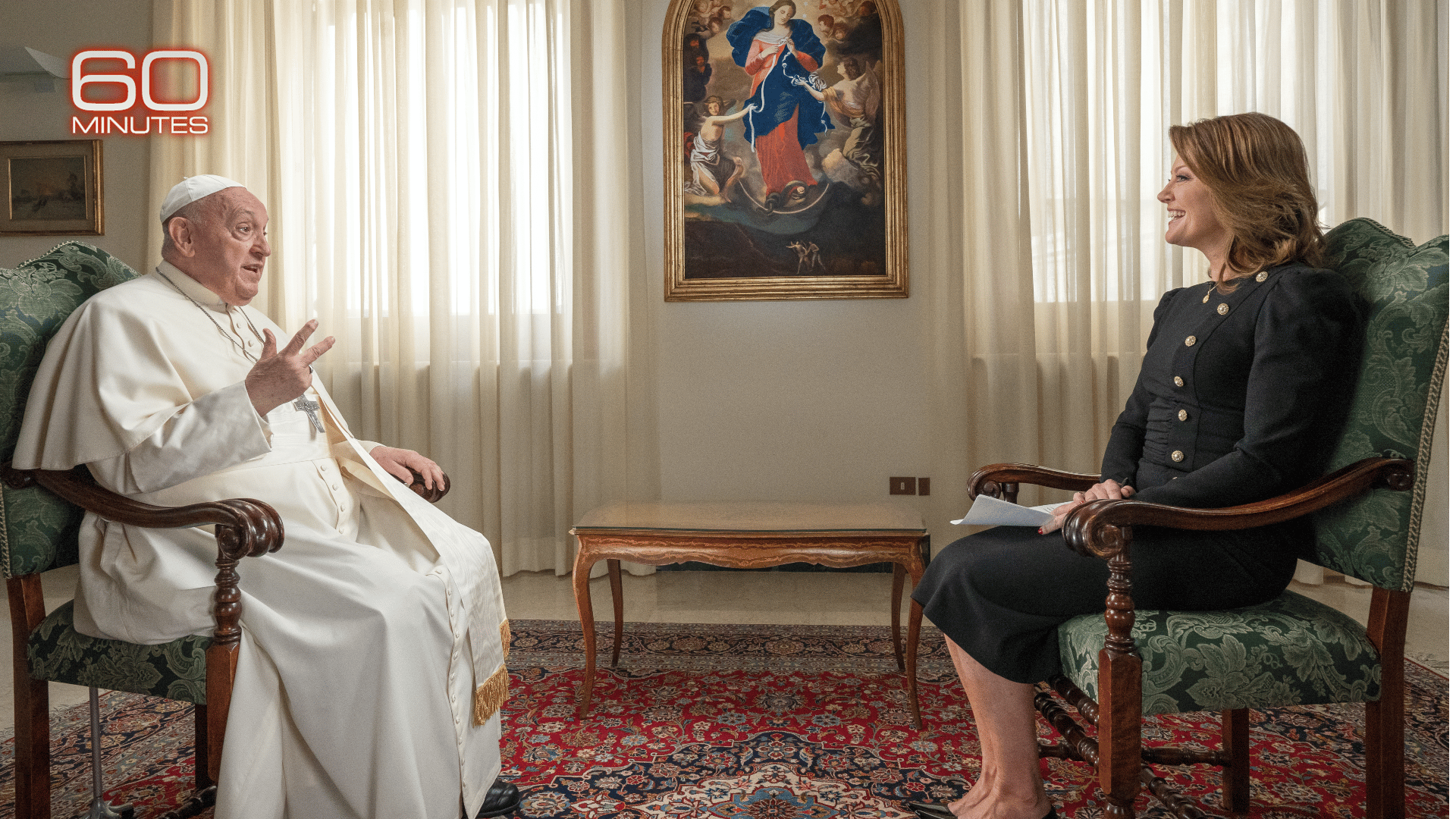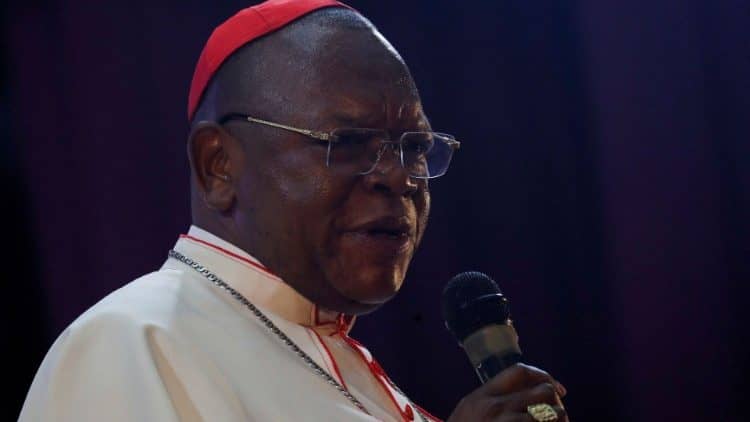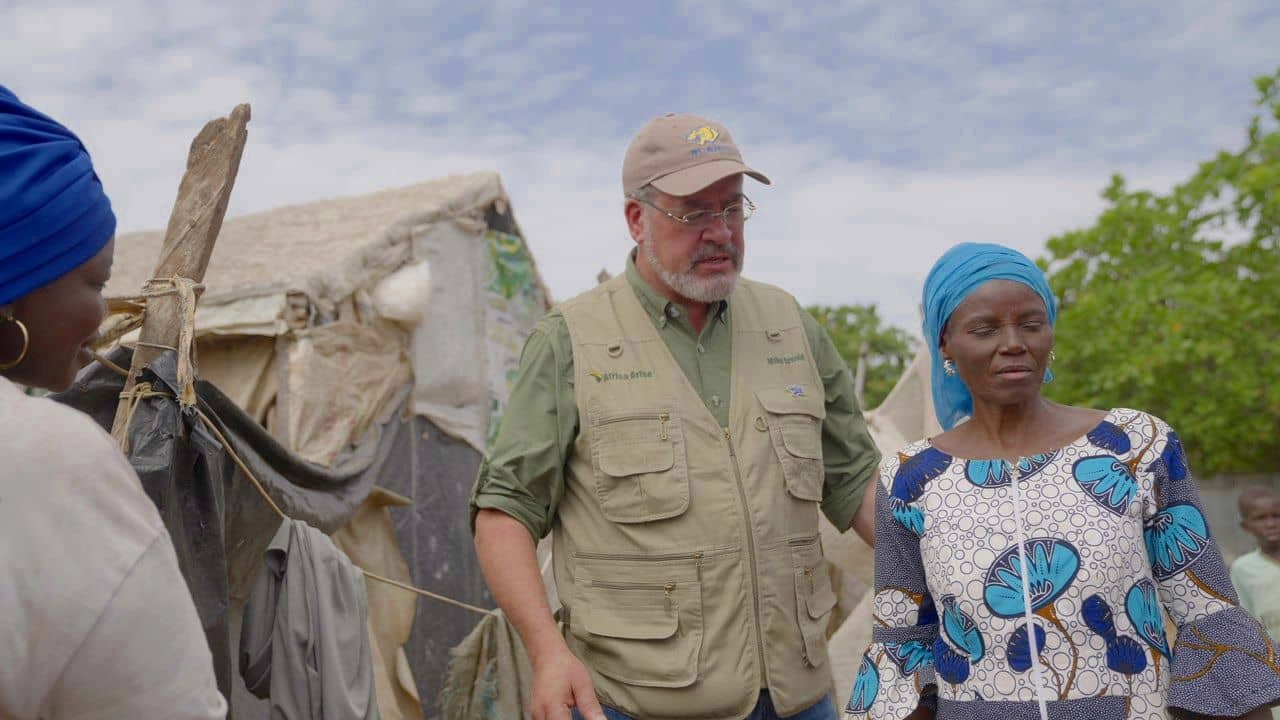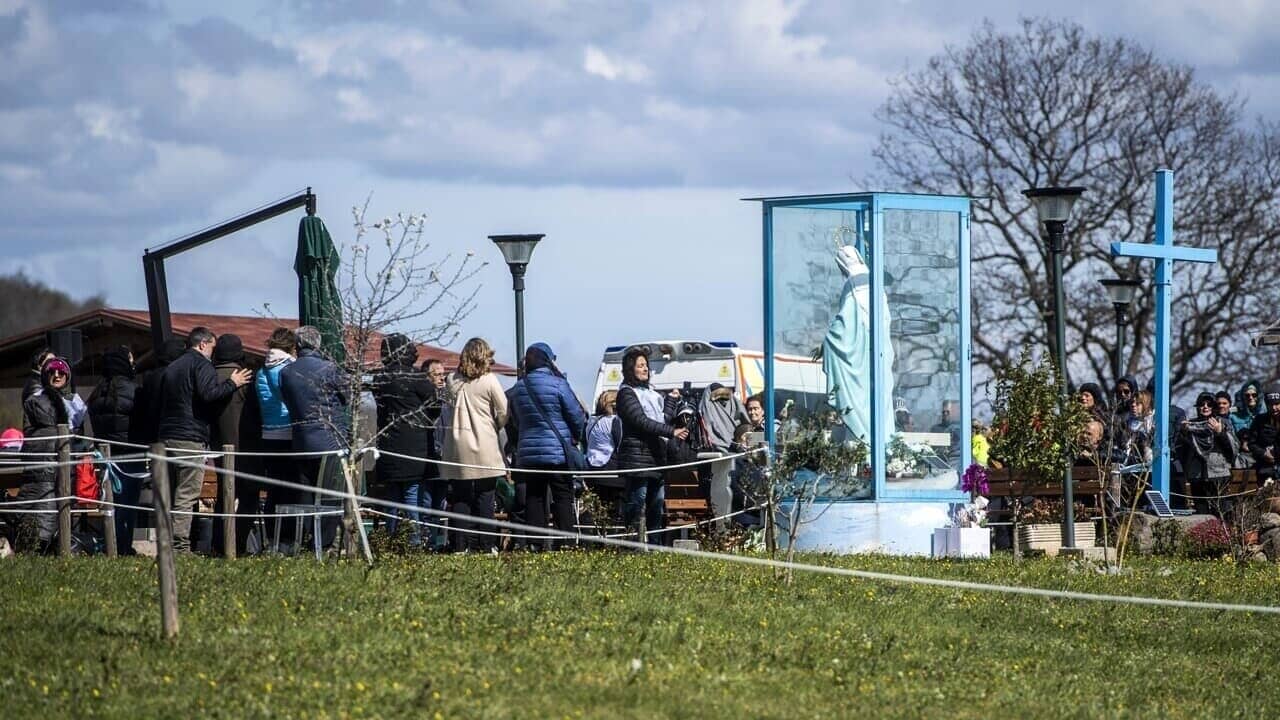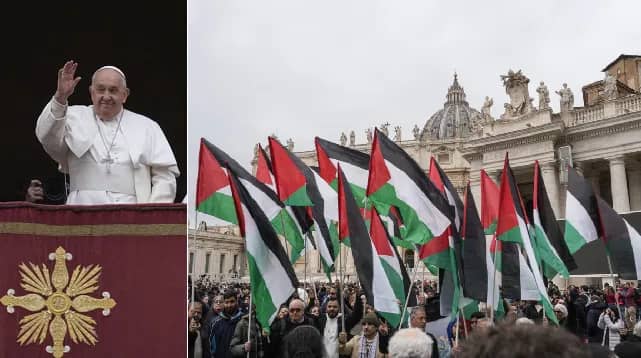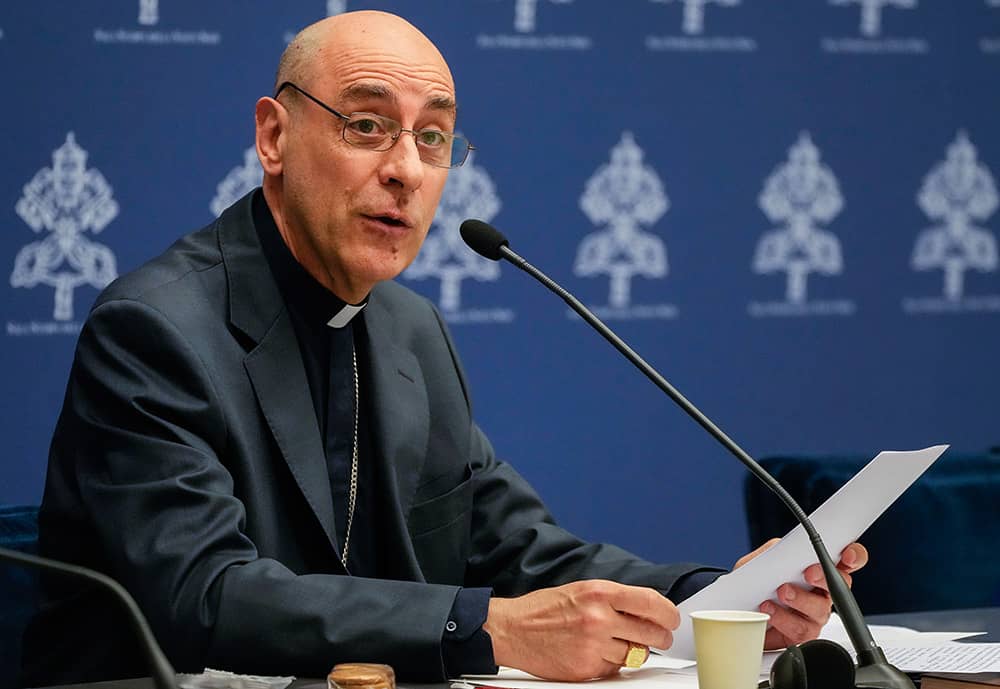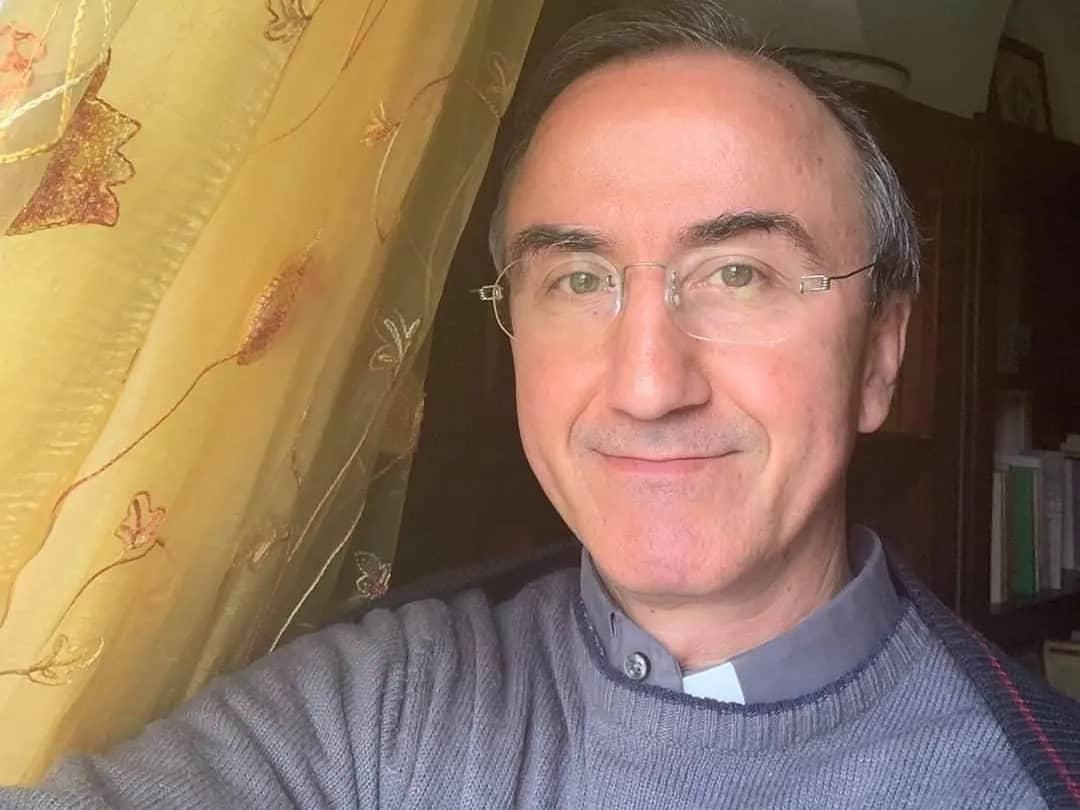YAOUNDÉ, Cameroon – Pope Francis has condemned a “cowardly attack” on the Mugunga camp for internally displaced Persons (IDPs) in the eastern part of the Democratic Republic of Congo.
The camp is home to around 27,000 people. It came under fire on May 3 when it was bombed, with the Congolese military accusing the Rwanda-backed M23 rebels of carrying out the attack.
At least 18 people were killed, many of them children, according to the United Nations Office for the Coordination of Humanitarian Affairs (OCHA). It said more than 30 other people were wounded.
In a May 8 letter addressed to Bishop Willy Ngumbi Ngengele of Goma Diocese, Pope Francis said he learnt “with sorrow” the “cowardly attack perpetrated in the refugee camp of Mugunga.”
The pope expressed his spiritual closeness “to all those affected by this act of blind hatred, in which many children were not spared,” and expressed support for “the injured and the grieving families” and prayed for the repose of the souls of those who lost their lives.
Francis once more condemned “any act of violence to resolve conflicts – violence of which the poorest and most deprived are always the first victims.”
He called on the Congolese people “to keep hope alive” and invited “all political actors to work resolutely in the service of peace and brotherhood.”
Catholic bishops in the Democratic Republic of Congo (DRC) on May 6 issued a statement condemning “in the strongest terms” what they described as “a barbaric act, which constitutes a denial of humanity.”
Noting that human life is sacred and belongs only to God, the bishops warned that those who delight in taking human life will never go unpunished.
Both the DRC and the United States have accused M32 rebels of carrying out the attack. In a tweet May 8, the spokesperson for the US Department of State, Mark Miller said the U.S. “strongly condemns the attack today from Rwanda Defense Forces and M23 positions on the Mugunga camp for Internally Displaced Persons in eastern Democratic Republic of the Congo. It is essential that all states respect each other’s sovereignty and territorial integrity.”
The Catholic bishops expressed their bewilderment at the situation where M23 rebels, backed by the Rwandan army, and the FARDC loyalist forces—despite being in conflict with each other—are positioning themselves on opposite sides of a long-standing camp for displaced people. This arrangement perpetually exposes vulnerable people who are already living in a state of dispossession.
“It is also surprising that this tragedy should occur at the gateway to Goma, a hyper-militarized city where many indications were given inviting the competent authorities to go on maximum alert to secure the population,” they said in a statement.
Bishop Sébastien-Joseph Muyengo Mulombe of Uvira in Eastern Congo told Crux the killers have “trivialized the tragedy of death” and kill fellow human beings for pleasure.
“Wherever we live, work, find ourselves, etc., we know that anything can happen, “he said.
Rwanda has pushed back on the accusations, calling the U.S. and DRC accusations against Rwanda “unjustified.”
“Rwanda will not shoulder the responsibility for the bombing of the IDP camps around Goma, or the security and governance failures of the government of the DRC” reads a May 4 statement by the Rwandan government.
Eastern DRC has for over 30 years now been beset by insecurity, with over 100 militia groups fighting for the control of the region’s territory and vast mineral deposits.
Tantalum – a key component in the production of smartphones – is present in vast quantities in Goma. Recently, the Congolese government raised concerns about the existence of “blood minerals” smuggled into Apple Inc’s supply chain, with tantalum being cited.
Muyengo called for a stronger State presence, saying it was essential for stability, governance, and addressing the challenges faced by communities in conflict-affected regions.
“In my view, the most crucial requirement is the revival or resurgence of the State. The events unfolding in the eastern part of our country serve as clear indicators of the State’s absence,” he told Crux.
He also called on the country’s authorities to examine the dynamics of DRC’s diplomacy, noting that many western powers who were once friends seem to have turned their backs on the Congo.
“Sometimes, when we lament the fact that smaller countries like Rwanda, Uganda, and Burundi occupy our thoughts at night, we are reminded that powerful nations stand behind them. However, it’s essential not to overlook the fact that some of these very nations, including the United States, were once allies with us,” the bishop said.
Muyengo asserted that the shift in attitude toward the DRC by its former allies can be traced back to the mineral issue, and hinted that Western governments might have a hand in the ongoing conflict in the country’s Eastern region, potentially orchestrating a situation conducive to mineral theft.
He said that the Congolese people not only endure the hardships of conflict but also share responsibility for the current situation. This responsibility arises from their frequent failure to denounce movements and individuals whom they suspect might pose a threat to the country’s security.









